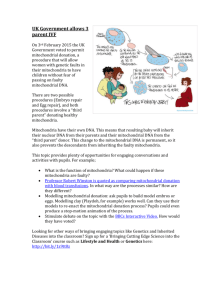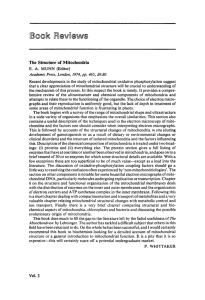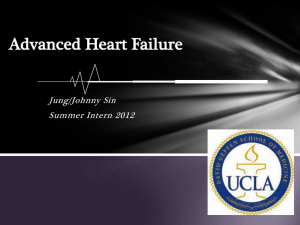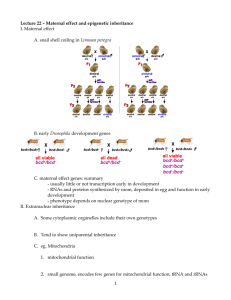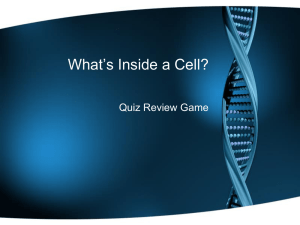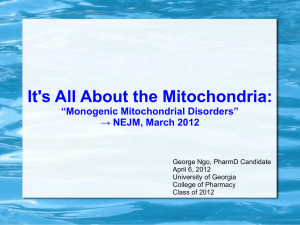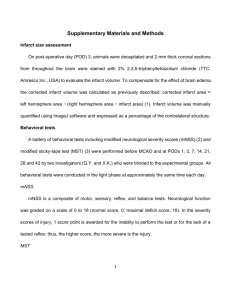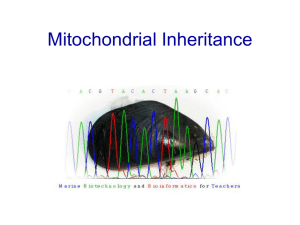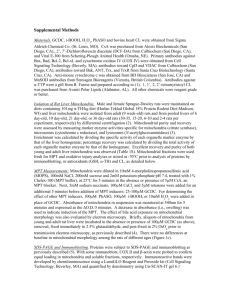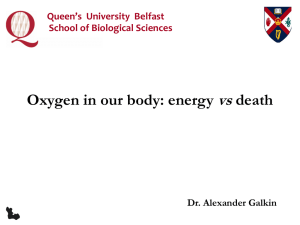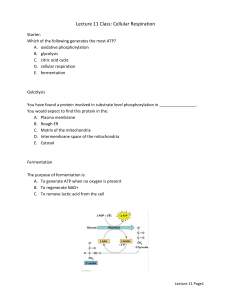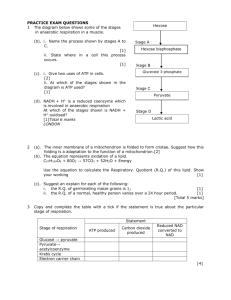Mitochondrial Transplantation for the Treatment of Perinatal Hypoxic
advertisement
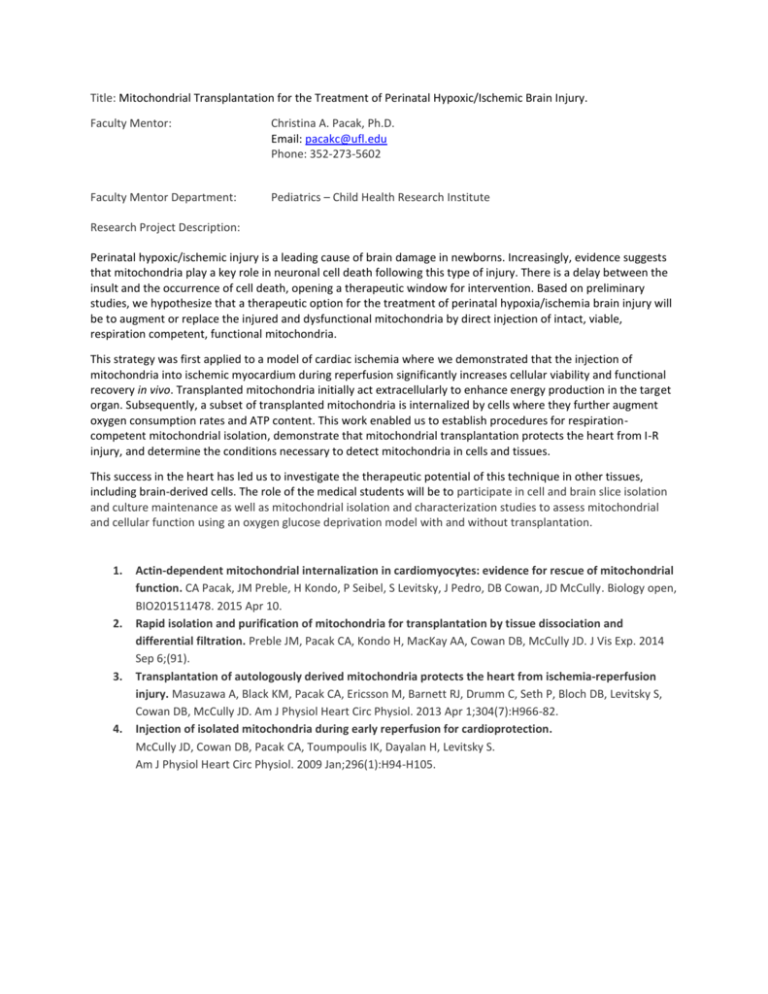
Title: Mitochondrial Transplantation for the Treatment of Perinatal Hypoxic/Ischemic Brain Injury. Faculty Mentor: Christina A. Pacak, Ph.D. Email: pacakc@ufl.edu Phone: 352-273-5602 Faculty Mentor Department: Pediatrics – Child Health Research Institute Research Project Description: Perinatal hypoxic/ischemic injury is a leading cause of brain damage in newborns. Increasingly, evidence suggests that mitochondria play a key role in neuronal cell death following this type of injury. There is a delay between the insult and the occurrence of cell death, opening a therapeutic window for intervention. Based on preliminary studies, we hypothesize that a therapeutic option for the treatment of perinatal hypoxia/ischemia brain injury will be to augment or replace the injured and dysfunctional mitochondria by direct injection of intact, viable, respiration competent, functional mitochondria. This strategy was first applied to a model of cardiac ischemia where we demonstrated that the injection of mitochondria into ischemic myocardium during reperfusion significantly increases cellular viability and functional recovery in vivo. Transplanted mitochondria initially act extracellularly to enhance energy production in the target organ. Subsequently, a subset of transplanted mitochondria is internalized by cells where they further augment oxygen consumption rates and ATP content. This work enabled us to establish procedures for respirationcompetent mitochondrial isolation, demonstrate that mitochondrial transplantation protects the heart from I-R injury, and determine the conditions necessary to detect mitochondria in cells and tissues. This success in the heart has led us to investigate the therapeutic potential of this technique in other tissues, including brain-derived cells. The role of the medical students will be to participate in cell and brain slice isolation and culture maintenance as well as mitochondrial isolation and characterization studies to assess mitochondrial and cellular function using an oxygen glucose deprivation model with and without transplantation. 1. 2. 3. 4. Actin-dependent mitochondrial internalization in cardiomyocytes: evidence for rescue of mitochondrial function. CA Pacak, JM Preble, H Kondo, P Seibel, S Levitsky, J Pedro, DB Cowan, JD McCully. Biology open, BIO201511478. 2015 Apr 10. Rapid isolation and purification of mitochondria for transplantation by tissue dissociation and differential filtration. Preble JM, Pacak CA, Kondo H, MacKay AA, Cowan DB, McCully JD. J Vis Exp. 2014 Sep 6;(91). Transplantation of autologously derived mitochondria protects the heart from ischemia-reperfusion injury. Masuzawa A, Black KM, Pacak CA, Ericsson M, Barnett RJ, Drumm C, Seth P, Bloch DB, Levitsky S, Cowan DB, McCully JD. Am J Physiol Heart Circ Physiol. 2013 Apr 1;304(7):H966-82. Injection of isolated mitochondria during early reperfusion for cardioprotection. McCully JD, Cowan DB, Pacak CA, Toumpoulis IK, Dayalan H, Levitsky S. Am J Physiol Heart Circ Physiol. 2009 Jan;296(1):H94-H105.
